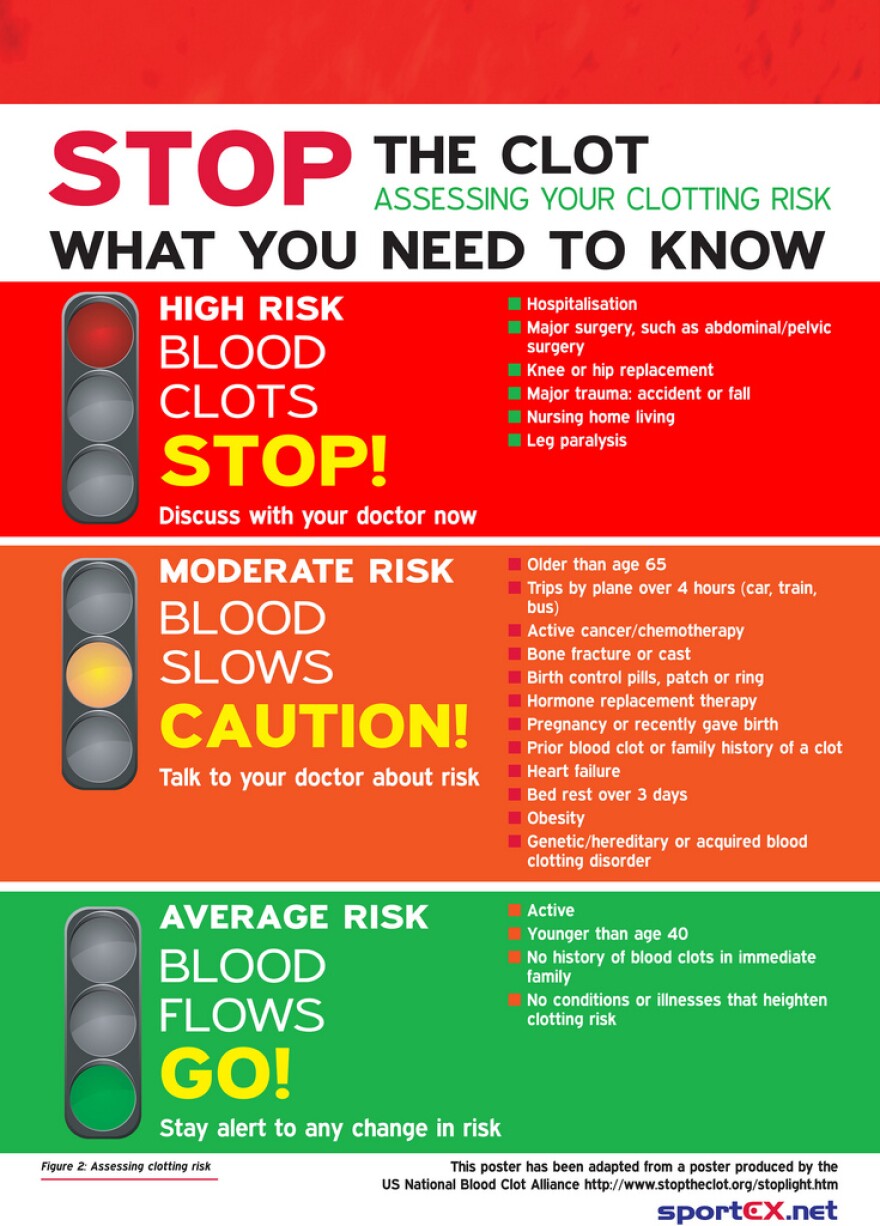The American Society of Hematology states, “Blood clotting, or coagulation, is an important process that prevents excessive bleeding when a blood vessel is injured. Platelets and proteins in your plasma work together to stop the bleeding by forming a clot over the injury. Typically, your body will naturally dissolve the blood clot after the injury has healed. Sometimes, however, clots form on the inside of vessels without an obvious injury or do not dissolve naturally. These situations can be dangerous and require accurate diagnosis and appropriate treatment.
The most dangerous types of blood clots are Deep Vein Thrombosis and Pulmonary Embolism.
Deep Vein Thrombosis occurs when a blood clot forms in one of the deep veins of your body, usually in your legs, but sometimes in your arm. Clots can break off from this and travel to the lung, causing a pulmonary embolism, which can be fatal.
There are variety of risk factors for blood clots, including:
Major surgery, such as a hip replacement
Major trauma, such as a car accident
Smoking
Use of birth control
Obesity
Pregnancy and Childbirth
Sitting for long periods, especially during travel or confinement to bed
and Thrombophilia, or clotting disorders, such as the inherited Factor V Leiden which is particularly dangerous for pregnant women.
The prevention and treatment of blood clots primarily involves the use of anticoagulant medications or, as they are commonly referred to, “blood thinners.”
Resources:
http://www.hematology.org/Patients/Clots/
https://www.stoptheclot.org/about_natt-2/



